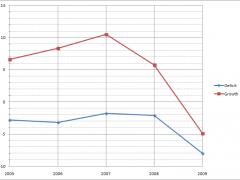-

Does quiet on the streets mean austerity has been accepted in Lithuania?
The austerity issue is based on spending less. But if governments spend less, people believe they are being robbed of their jobs and income, and citizens start protesting in the streets. Yet despite severe public spending cuts in Lithuania of a relative magnitude to those in Spain and Greece, Lithuanians […]
Read all posts for ‘public spending’
-

Austeridad y crisis económica: ¿receta para el desastre?
Abstract: During the economic and fiscal crises the world has faced recently, austerity has taken center stage in plans to restore order to the public finances of the countries affected. But, what happens when countries have problems of low growth? Can you reduce government spending without deepening economic crises? The example of Europe […]
-

No real austerity in Slovakia
Even in previous decades during years of high growth, Slovakia still ran up big deficits. To enter the euro area a country has to meet a reasonable set of criteria known as the Maastricht criteria. This means that a country which gives up its local currency must keep its deficit […]
-

The Torn Pocket of Father State
The Salvadoran state is like a father who has many children. It is in debt, has limited wages, has maxed out its credit cards and overdrawn its checking account, and while it gets loans to restructure its debt, it always comes back for another overdraft. Father State thinks he’s doing well. He […]
-

El bolsillo roto de papá Estado
Abstract: At the end of 2012, the debt of El Salvador reached $13,480.1 million, about 56.5% of the Gross Domestic Product. The Government has a limited income but a growing spenditure, and nowadays maintains a list of subsides on products and services that costs over $400 million. This subsides have […]
